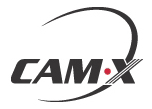Guest Blog By: Carolynne Simons
 Carolynne Simons has an entrepreneurial background in fitness and wellness development for global companies. She retired from competitive gymnastics and cheerleading under world-renowned coach, David Lee Tracey at The University of Western Ontario. She traveled from Western Canada, to Denmark, to Spain in the ITU MultiSport World Championships on Canada’s National Triathlon Team. She is now the Communications Director for MultiSport Canada, managing end-to-end endurance events in Ontario, Canada. To learn more about participating in swimming, cycling, and running events please visit www.multisportcanada.com
Carolynne Simons has an entrepreneurial background in fitness and wellness development for global companies. She retired from competitive gymnastics and cheerleading under world-renowned coach, David Lee Tracey at The University of Western Ontario. She traveled from Western Canada, to Denmark, to Spain in the ITU MultiSport World Championships on Canada’s National Triathlon Team. She is now the Communications Director for MultiSport Canada, managing end-to-end endurance events in Ontario, Canada. To learn more about participating in swimming, cycling, and running events please visit www.multisportcanada.com
When we talk about the concept of holding focus, it’s how quickly we can re-direct ourselves back to what’s right in front of us. If we plug into any energy source, isn’t there usually an expectation that comes with committing to a source and achieving a desired outcome?
Using your ability to focus your attention on any sport can be applied to just about anything in the workplace. If mastering a skill that happens in seconds takes thousands of repetitions, there’s a reason behind that. Similarly, building endurance takes years to cultivate, no matter what level you take it to.
What is it about our own skills that require attention and what does ‘practice’ really mean?
High achievement could be viewed as the ability to pivot and adapt to constantly changing conditions. Everyone requires a little something different in terms of environment and time they need to ‘settle in’ to things. It’s also important to recognize that sometimes, it never happens either. On the flip side, if your whole identity is wrapped up in if you had a good workout that day or not? There’s an issue there. It could mean your own sense of urgency is trying to over-direct the changes instead of allowing them to take a more gradual effect. Every environment is fluid and there’s truth behind the concept that the world is actually quite simple and we’re the ones who complicate it. The moment we find ourselves wandering into something that removes us from the present moment is when we lose focus.
Work ethic is harder to cultivate than the skill.
Sports teach us how to let go of what is not perfect and lean in on how to recover from discomfort as quickly as possible. Take Tiger Woods for example, does a bad shot define him and convince people that he’s NOT one of the best golfers in the world?
No. It’s the adjustment required when dark thoughts start to enter when coupled with pain and fatigue. It’s normal to have them, but how we control our attitude can make up the other 90% of what might yield better results. There will always be some degree of tension with high performance, look at it as a key ingredient in the process!
My point is, we can only change how we choose to react.
A challenge is only good if it’s productive and lots changed when I was asked one very important question in the workplace:
Q: How can you bring what ‘you do’ into what ‘we do’?
The sincerity in this case, implies there is a conditional and hypothetical element to the question about a problem that needs to be solved. We generally know what we want and need, as well as what we hope to achieve. High performers focus on the impact of their decisions and share one common goal: they share the success of others in the process.
Adapting is learning and that requires listening.
Be patient and try not to value yourself on your skills but instead, your willingness to learn. One of the best ways to foster high achievement is to gain confidence in the practice of how to cultivate energy to gain focus and endurance. Focus is critical, but so is knowing when to pivot. If we embrace the process of adaptation, resiliency will fuel the high achievement motive and that’s why it’s important to place a high value on training.
The ‘reps’ we do help convince ourselves that what we want, is within reach. This builds a framework to understand that good execution comes with time, we just have to give it time.
In summary, creating a high performing work environment comes from developing a team that values the success of hard work and facilitates accelerated learning. Purposefully spending time offering direction and employee feedback to experience success as a collective is the most important factor in fueling the high achievement motive. Everyone has skills they want to cultivate and teams that perform their best often rely on the energy source they themselves generate to pull on the skills of others to make everything move well.
The feedback is critical and helps us refine the process. It’s more than worth the effort.
TwoGreySuits website contains all the information required to be a superior manager of people, specifically in the Performance Management module.
The TGS System is a one-of-a-kind product that includes:
The HR Power Centre for implementing professional people management practices, and helping you deal with the day-to-day people management issues that inevitably arise
24/7 HR Hot Line answered within 24 hours (but usually within 1 hour!)
Topical regular Blogs suitable for reprinting (permission required if not a website user/customer)
TwoGreySuits is a leading-edge provider of on-line human resource management information, processes, tools and forms servicing the global market. We have integrated the HR practices associated with the key drivers of Employee Engagement within the well-organized information on the website.
Our website is built on the premise that if you truly see the value and want to manage people professionally, using our tools and information, you will see increased employee engagement levels over time, a win for everyone!




